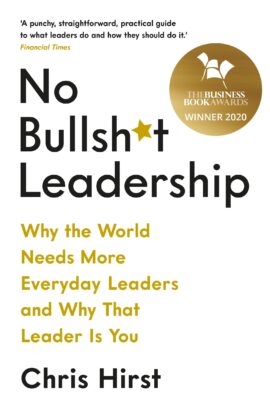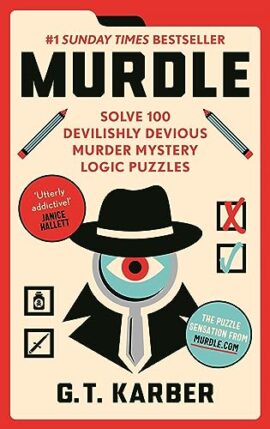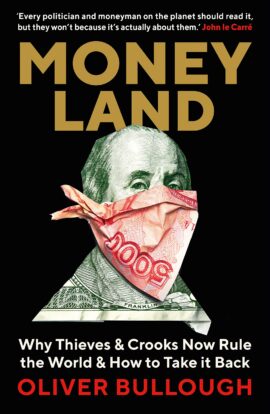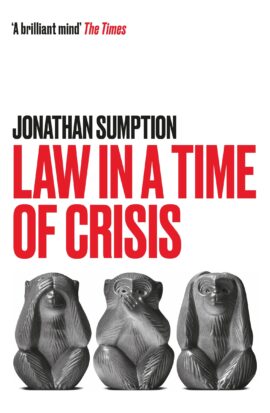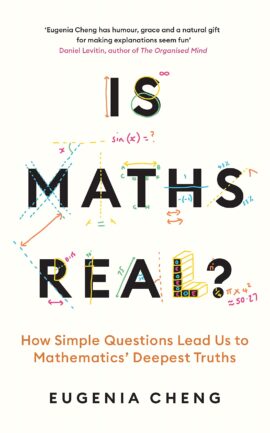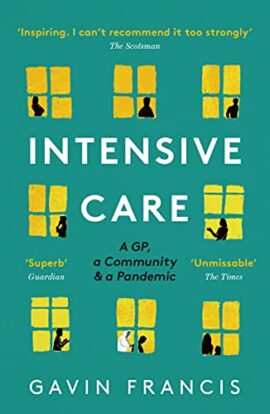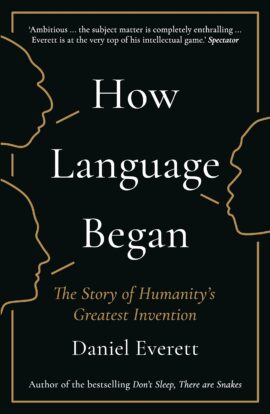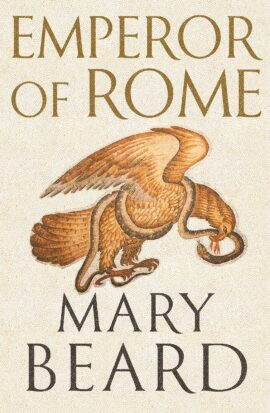Affichage de 589–600 sur 1221 résultatsTrié par popularité
Satantango
Translated by George SzirtesFrom the winner of the Man Booker International PrizeIn the darkening embers of a Communist utopia, life in a desolate Hungarian town has come to a virtual standstill. Flies buzz, spiders weave, water drips and animals root desultorily in the barnyard of a collective farm.But when the charismatic Irimias - long-thought dead - returns, the villagers fall under his spell. Irimias sets about swindling the villagers out of a fortune that might allow them to escape the emptiness and futility of their existence. He soon attains a messianic aura as he plays on the fears of the townsfolk and a series of increasingly brutal events unfold.
No Bullsh*t Leadership
Leadership is not some special club, open only to elites. It's not a gold star given only to those with expensive degrees. Leadership is for everyone. Based on the author's hard-won experience as a Global CEO, this smart, fun book delivers a step-by-step working manual on how to lead - for anyone. Full of simple and direct approaches, it demystifies an over-analyzed subject to get to the heart of modern leadership: the life-changing, career-transforming power to get stuff done.
Murdle: Solve 100 Devilishly Devious Murder Mystery Logic Puzzles (Murdle Puzzle Series)
G. T. Karber, the creator of the popular online daily mystery game Murdle, presents a collection of 100 original murder mystery logic puzzles - the perfect gift for armchair detectives and puzzlers to hone their minds and solve a crime.- Who committed the ghastly deed?- What weapon was used to dispatch the victim?- Where did the calculated demise occur?Join Detective Logico and investigate murders most foul in Murdle.These humorous mini-mystery puzzles challenge you to find whodunit, how, where, and why. Examine the clues, interview the witnesses, and use the power of deduction to complete the grid and catch the culprit. Packed with illustrations, codes, and maps, this is the must-have detective casebook for the secret sleuth in everyone.
Moneyland: Why Thieves And Crooks Now Rule The World And How To Take It Back
SUNDAY TIMES BUSINESS BOOK OF THE YEARan ECONOMIST Politics and Current Affairs book of the yearand a DAILY MAIL and TIMES book of the year'You cannot understand power, wealth and poverty without knowing about Moneyland.'Simon Kuper, New Statesman2019: democracy is eating itself, inequality is skyrocketing, the system is breaking apart. Why?Because in 1962, some bankers in London had an idea that changed the world. That idea was called 'offshore'. It meant that, for the first time, thieves could dream big. They could take everything.Join investigative journalist Oliver Bullough on a journey into the hidden world of the new global kleptocrats.See the poor countries where public money is stolen and the rich ones where it is laundered and invested. Watch the crooks at work and at play, and meet their respectable, white-collar enablers. Learn how the new system works and begin to see how we can tackle it.
Law in a Time of Crisis
'Thoughtful, stimulating and even entertaining ... Lord Sumption's opinion is always worth listening to, even - or especially - if one disagrees with it.' Daily Telegraph'Time spent on Law in a Time of Crisis is time spent in the company of a brilliant mind considering interesting things' The TimesBrexit, the independence referendum, the the UK is a country in crisis. And, in crises, we turn to the law to set the boundaries of what the government can and should do. However, in a country with no written constitution, what sounds like a simple proposition is in fact anything but.Based on his 2019 Reith lectures, former Supreme Court Judge Jonathan Sumption what are the limits of law in politics? Is not having a constitution a hindrance or help in times of crisis? From referenda to the rise of nationalisms, Law in a Time of Crisis exposes the uses and abuses of legal intervention in British crises - past, present, and potential.
Is Maths Real?
Why is -(-1) = 1?Why do odd and even numbers alternate?What's the point of algebra?Is maths even real?From imaginary numbers to the perplexing order of operations we all had drilled into us, Eugenia Cheng - mathematician, writer and woman on a mission to rid the world of maths phobia - brings us maths as we've never seen it before, revealing how profound insights can emerge from seemingly unlikely sources.Written with intelligence and passion, Is Maths Real? is a celebration of the true, curious spirit of the discipline.
Intensive Care
13 January, 2020.A bulletin from Health Protection Scotland is sent to all GP practices, describing a 'novel Wuhan coronavirus'. It was the first time I'd heard of the virus. 'Current reports describe no evidence of significant human to human transmission, including no infections of healthcare workers,' it says, reassuringly.As COVID-19 has ripped across the globe, crossing borders and crashing markets, it has already cost tens of thousands their lives. But as we wait to discover the full effects of the pandemic, one thing is already clear: on the frontlines of the crisis are our healthcare workers.In Notes on a Crisis , doctor Gavin Francis will take you beyond the headlines to the bedsides of those suffering most, from his GP surgery in Edinburgh to the homeless charity where he volunteers. And inside this compelling narrative of missed opportunities, tragedies and occasional triumphs, he weaves the wider history of medical practice, pandemics and vaccines.Full of compassion, this deeply personal account of a doctor's experiences during the darkest of times is also an intelligent study of what pandemics can do to us - and what we can do about them.
How to Invest
The first quarter of the new century has seen developments in technology, monetary policy and the management of large companies that have transformed personal savings and investment around the world.Love it, loathe it, or just not interested in it, this innovation has changed not only the nature of money, but our understanding of what it means to invest - whether we want to safeguard our pensions, experiment with personal trading platforms or simply understand how the markets really work.How to Invest aims to help investors navigate this new world, offering a principles-based, keep-it-simple approach to help them make investment decisions and have investment conversations that will make the most of their money.
How Language Began: The Story of Humanity’s Greatest Invention
In his groundbreaking new book Daniel Everett seeks answers to questions that have perplexed thinkers from Plato to Chomsky: when and how did language begin? What is it? And what is it for?Daniel Everett confounds the conventional wisdom that language originated with Homo sapiens 150,000 years ago and that we have a 'language instinct'. Drawing on evidence from a wide range of fields, including linguistics, archaeology, biology, anthropology and neuroscience, he shows that our ancient ancestors, Homo erectus, had the biological and mental equipment for speech one and half million years ago, and that their cultural and technological achievements (including building ocean-going boats) make it overwhelmingly likely they spoke some kind of language.How Language Began sheds new light on language and culture and what it means to be human and, as always, Daniel Everett spices his account with incident and anecdote. His book is convincing, arresting and entertaining.
Emperor of Rome
A sweeping account of the social and political world of the Roman emperors by “the world’s most famous classicist” ( Guardian ). In her international bestseller SPQR , Mary Beard told the thousand-year story of ancient Rome. Now she shines her spotlight on the emperors who ruled the Roman empire, from Julius Caesar (assassinated 44 BCE) to Alexander Severus (assassinated 235 CE).Emperor of Rome is not your usual chronological account of Roman rulers, such as the mad Caligula, the monster Nero, the philosopher Marcus Aurelius. Beard asks bigger questions: What power did emperors actually have? Was the Roman palace really so bloodstained? She tracks down the emperor at home, at the races, on his travels, even on his way to heaven. She introduces his wives and lovers, rivals and slaves, court jesters and soldiers―and the ordinary people who pressed begging letters into his hands.Emperor of Rome goes directly to the heart of Roman (and our own) fantasies about what it was to be Roman, offering an account of Roman history as it has never been presented before. 160 images: 16-page color insert
Breaking & Mending
One of the most beautiful books you will ever read' Kate MosseIn this powerful memoir, Joanna Cannon tells her story as a junior doctor in visceral, heart-rending snapshots.We walk with her through the wards, facing extraordinary and daunting moments: from attending her first post-mortem, sitting with a patient through their final moments, to learning the power of a well- or badly chosen word. These moments, and the small sustaining acts of kindness and connection that punctuate hospital life, teach her that emotional care and mental health can be just as critical as restoring a heartbeat.In a profession where weakness remains a taboo, this moving, beautifully written book brings to life the vivid, human stories of doctors and patients - and shows us why we need to take better care of those who care for us.
Being Mortal
For most of human history, death was a common, ever-present possibility. It didn't matter whether you were five or fifty - every day was a roll of the dice. But now, as medical advances push the boundaries of survival further each year, we have become increasingly detached from the reality of being mortal. So here is a book about the modern experience of mortality - about what it's like to get old and die, how medicine has changed this and how it hasn't, where our ideas about death have gone wrong. With his trademark mix of perceptiveness and sensitivity, Atul Gawande outlines a story that crosses the globe, as he examines his experiences as a surgeon and those of his patients and family, and learns to accept the limits of what he can do. Never before has aging been such an important topic. The systems that we have put in place to manage our mortality are manifestly failing: but, as Gawande reveals, it doesn't have to be this way. The ultimate goal, after all, is not a good death, but










